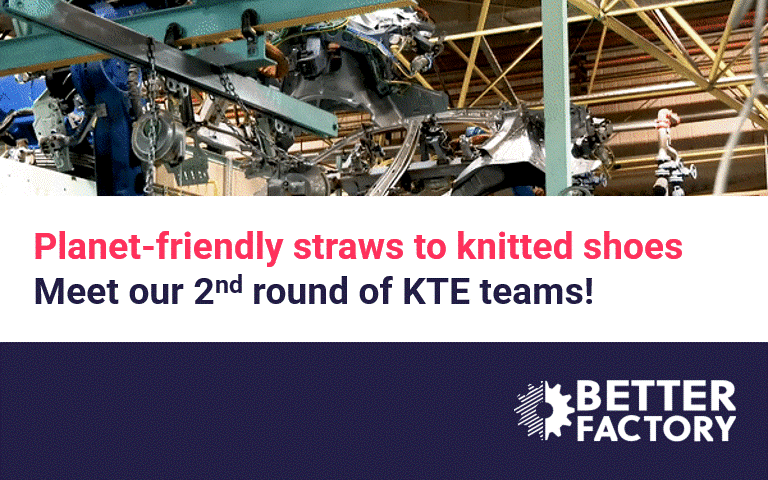Meet the 9 new teams selected for Better Factory, an EU-funded project, disrupting factory innovation!
● Better Factory aims to help manufacturing SMEs to become more competitive globally, by using art and technology expertise to create new and personalised products
● The 16-month programme boost each team (consisting of a manufacturing SME, an artist and a technology provider) with up to EUR 200,000 funding and technical support
● The first round of 8 teams have already successfully innovated process like centuries-old Parma ham production, zero waste metal production, and a new circular material for young tree growth
● The second round of teams will be working on numerous innovations, from a smart digitised envelope, to eco-friendly diving fins, to sustainable durable drinking straws
What is the Better Factory project?
The Better Factory project, funded under the European Commission H2020 programme, aims to help European manufacturers become more competitive in the global market by providing up to EUR 200,000 equity-free funding to develop and deploy collaborative intra-factory experiments.
Through these 16-month experiments, conventional factories will be transformed into lean-agile production facilities, capable of manufacturing new and personalised products along with existing ones.
The first round of 8 teams came from 12 European countries, and have successfully innovated processes like centuries-old Parma ham production, tested human-robot coworking to create zero waste metal production, and pushed the boundaries of a new circular material Stone Paper for young tree protection.
Meet the new 9 participating teams
The Second Open Call for applicants saw 56 applications from teams of one manufacturing SME, one artist, and one technology provider. After an initial sifting process, 19 of these teams were invited to pitch during a Jury Day with independent expert judges, and finally 9 top teams[1] were selected to go through to participate in the project.
The 9 teams chosen to take part in the second round of Better Factory will explore new markets using digital tools, test and develop new lean-agile production technologies, make deals through the Robotics and Automation MarketPlace (RAMP), access training to re-skill staff, receive business support and mentoring, and to get up to 200,000 EUR of equity-free funding.
So who are the teams in question, and what manufacturing challenges are they innovating and solving?
1. OCCE – The 100% Recyclable Office Chair Reimagining the traditional office chair with a focus on 100% recyclability, reduced emissions, and minimised production costs.
2. Internet of Art and Wine – Sustainable Wine Production with AR and Robotics Optimising Wine Production with Smart Corks, Eco-Packaging, Biomaterials, E-Labelling, and Augmented Reality.
3. STARIOT – Sustainable straws, greener future Revolutionizing the straw market with durable, resistant and socially responsible products.
4. SHOES IN CIRCLE – Your footprint, reduced Sustainable knitted shoes, combined with IoT and robotics to reduce waste
5. MICOCRAFT – Bio-Inspired Glue for Sustainably Manufactured Products A biobased material, using a natural glue, replaces synthetic materials, for a sustainable manufacturing process for the construction industry.
6. SMARTVIEW – Factory floor collaboration at your fingertips Enhancing cross-factory collaboration and communication for improved productivity, sustainability, and worker well-being.
7. SMART ENVELOPE – Digitalised and eco-friendly envelopes A new line of sustainable and digital postal products, designed to enhance customer experience and environmental responsibility
8. 3 DART DESIGN – Transforming metal waste into opportunity – Identifying new applications and markets for products made from overused powder from medical implants.
9. ReFINE – Dive deeper with less impact – The future of sustainable F1 scuba diving fins, with an optimized design and reshored manufacturing processes.
Interested in the innovations these teams are working on? Follow their progress over the next few months by following Better Factory on Twitter and LinkedIn, signing up to the newsletter, and also meeting the team at numerous European events announced on our blog.

